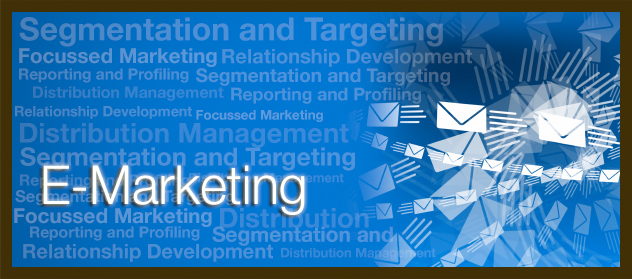The real difference between marketing vs advertising is that marketing focuses on the broader strategy of building brand awareness and customer loyalty over time, while advertising is a paid, targeted method used to promote products or services directly to potential customers. Marketing is long-term; advertising is campaign-specific and tactical.

Content
Why Knowing the Difference Between Marketing and Advertising Matters
In a business world where visibility determines success, understanding marketing vs advertising is crucial. Business owners, marketers, and entrepreneurs often use the terms interchangeably, but they play distinctly different roles in driving growth. Recognizing the separation ensures smarter budgeting, better strategy formation, and more sustainable brand building.
What is Marketing? A Complete Overview
Marketing is the comprehensive strategy that shapes how a brand communicates with and delivers value to its audience. It goes beyond promotion, addressing market research, pricing, product development, distribution, customer service, and long-term relationship management.
Effective marketing integrates several key pillars:
- Digital Marketing: Leveraging online platforms like websites, SEO, email campaigns, and mobile apps to build visibility and engagement.
- Content Marketing: Creating informative, valuable content (blogs, videos, eBooks) to nurture trust and educate audiences.
- Social Media Marketing: Engaging directly with users on platforms like Instagram, LinkedIn, and Facebook to build community and loyalty.
- Marketing Strategy: Developing an organized plan that aligns messaging, channels, audience segmentation, and branding with business goals.
An excellent example is how Apple’s marketing strategy blends sleek product design, customer-centric messaging, and omnichannel engagement to maintain loyalty and inspire global advocacy.
What is Advertising? A Focused Approach
While marketing is the full framework, advertising is a tactical tool within it, specifically designed to promote a product, service, or idea through paid channels. The primary goal of advertising is to generate immediate awareness, drive demand, or increase sales.
Forms of advertising include:
- Online Advertising Services: Paid placements like Google Ads, YouTube ads, banner ads, and native ads.
- Facebook Advertising Services: Precision targeting based on demographics, behaviors, and interests for higher ROI.
- Video Advertising Agency Campaigns: Crafting promotional videos for YouTube, TikTok, and social platforms to amplify brand storytelling.
- Traditional Media Advertising: Television, radio, print, and billboard promotions still play major roles in specific industries.
A prime example is Coca-Cola’s legendary holiday campaigns, where carefully crafted ads consistently drive massive emotional connection and seasonal sales spikes.
Key Differences Between Marketing and Advertising
To understand marketing vs advertising clearly, let’s break down the essential contrasts:
| Aspect | Marketing | Advertising |
| Definition | Holistic process involving market research, branding, communications, and customer relations. | Paid communication designed to promote a product or service to target audiences. |
| Goal | Build brand equity and foster long-term customer loyalty. | Drive immediate action, awareness, or sales. |
| Timeframe | Continuous and evolving. | Short-term or campaign-based. |
| Tools Used | SEO, branding, social media, customer service, PR, analytics. | Online ads, print media, broadcast commercials, sponsorships. |
| Audience Approach | Focus on nurturing relationships across the customer journey. | Focus on persuading the audience at specific touchpoints. |
While advertising can spike interest quickly, marketing sustains brand relevance and nurtures deeper customer relationships over time.
How Marketing and Advertising Work Together for Business Success
Although distinct, marketing and advertising work symbiotically. Without a solid marketing strategy, even the most creative advertising falls flat. Conversely, without advertising, a brilliant marketing plan may struggle to reach a wider audience.
Here’s how the synergy works:
- Marketing identifies customer needs and crafts a compelling value proposition.
- Advertising communicates that proposition at scale through paid media.
- Marketing strategy ensures that advertising messages are aligned with brand positioning and long-term goals.
For instance, a fashion brand might develop a content marketing hub that educates customers about sustainable fashion, while simultaneously launching Facebook advertising services campaigns to promote eco-friendly collections.
Businesses that master the coordination between marketing and advertising generate higher brand loyalty, conversion rates, and profitability.
Marketing vs Advertising vs Branding: Clarifying the Overlaps
To fully grasp marketing vs advertising, it’s essential to introduce branding into the conversation.
- Branding is who you are — your values, personality, visuals, and emotional resonance with the customer.
- Marketing is how you communicate that brand to the world, emphasizing value propositions and solving customer problems.
- Advertising is the paid tactic used to push specific brand messages to broader audiences.
A simple analogy:
Branding is the foundation, marketing is the blueprint, and advertising is the loudspeaker.
Nike’s branding (“Just Do It”) creates an emotional connection, their marketing strategy delivers consistent narratives across channels, and their advertising campaigns amplify those narratives globally.
Understanding the trio’s relationship empowers businesses to create consistent, powerful messaging that connects and converts.
Real-World Success Stories
Looking at real-world examples showcases how marketing vs advertising manifests practically:
- Apple excels in marketing, building an ecosystem where customer loyalty transcends product features. Their campaigns rarely focus solely on selling; they evoke emotions like creativity and innovation.
- Old Spice, with its humorous rebranding efforts, exemplified transformative advertising. The “Smell Like a Man, Man” campaign reignited consumer interest almost overnight.
- Amazon dominates through an integrated model where content marketing, advertising, and branding converge to create an unbeatable customer experience.
The takeaway is simple: success rarely stems from advertising or marketing alone. It emerges from a thoughtful, integrated approach.
Choosing the Right Strategy for Your Business
Determining whether to emphasize marketing or advertising depends on your business’s size, resources, and goals:
- New businesses should invest heavily in marketing strategy to establish positioning, messaging, and brand identity.
- Growing businesses can lean more into online advertising services to accelerate customer acquisition.
- Established brands should consistently balance content marketing, SEO, social media marketing, and paid ads to maintain momentum and deepen customer loyalty.
Always consider the importance of marketing and advertising together — not one in isolation. Brands that excel today focus on both long-term brand building and short-term performance marketing.
Conclusion
In the dynamic world of business, mastering the differences between marketing vs advertising is not optional — it’s essential. Marketing builds relationships, nurtures trust, and ensures relevance over time. Advertising delivers focused bursts of visibility and action.
Brands that integrate both thoughtfully will not just survive — they will thrive.
If you want your brand to grow strategically and sustainably, start by developing a powerful marketing strategy and then amplify it through strategic, well-crafted advertising efforts.
Frequently Asked Questions
What is the main difference between marketing and advertising?
Marketing is a broad strategy that builds brand awareness and loyalty, while advertising is a paid tactic focused on promoting products or services.
Is advertising part of marketing?
Yes, advertising is a key component of marketing. It involves paid promotions within the broader strategy of connecting with and retaining customers.
Which is more important: marketing or advertising?
Both are important. Marketing ensures long-term growth and relationship building, while advertising drives immediate awareness and customer actions.
Can a business succeed with advertising alone?
No, advertising without a strong marketing foundation often results in short-term gains but lacks the sustainability needed for long-term business success.

Bradley attended Boston University where he received a Bachelor’s degree in Economics and Political Science as well as a Master’s degree in Business Administration from Columbia University Graduate School of Business (currently attending). He loves to write about everything business related.











